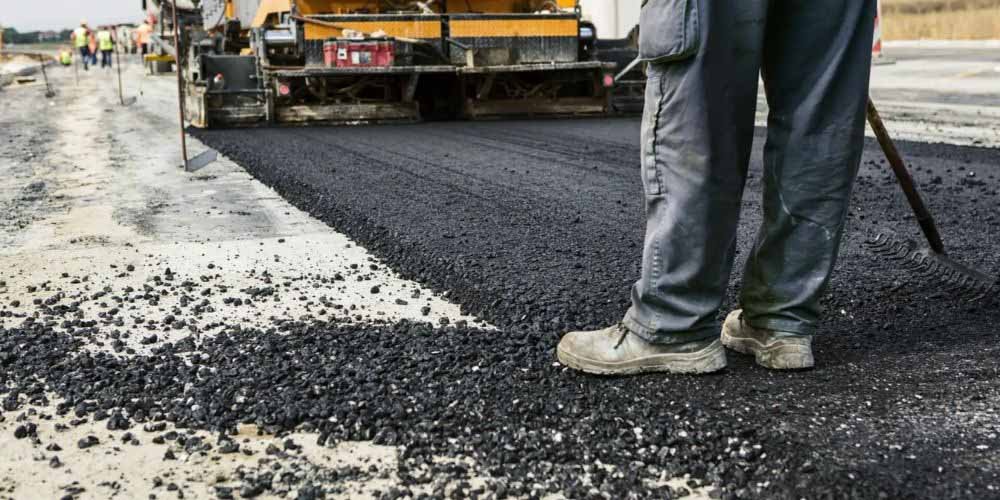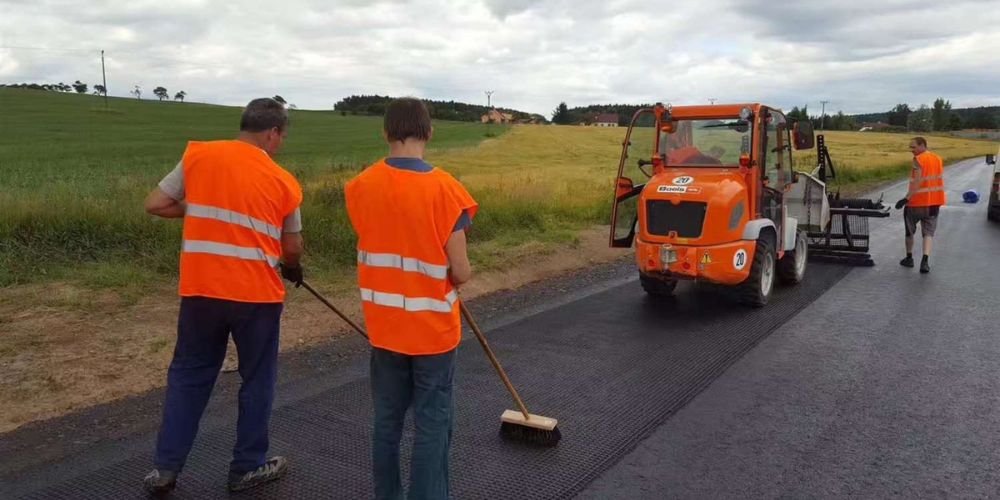Asphalt vs. Concrete Surfacing: Making the Right Choice for Your Project

When embarking on a construction or renovation project, one of the crucial decisions you’ll face is choosing the appropriate material for your surfacing needs. Asphalt and concrete are two of the most common options, each offering distinct advantages and disadvantages. This article aims to guide you through the decision-making process by comparing asphalt surfacing with concrete, helping you make an informed choice that aligns with your project’s requirements.
Introduction to Asphalt and Concrete Surfacing
Asphalt and concrete are two of the most widely used materials for surfacing roads, driveways, parking lots, and various other infrastructure projects. They offer distinct advantages and characteristics that make them suitable for different applications.
Asphalt Surfacing
Asphalt, commonly known as blacktop or pavement, is a versatile material widely used in surfacing applications due to its flexibility, cost-effectiveness, and durability. It is composed of a mixture of aggregates (such as sand, gravel, and crushed stone) and bitumen, a sticky, black, petroleum-based binder.
Concrete Surfacing
Concrete is a composite material composed of cement, water, and aggregates like sand and gravel. It is renowned for its strength, longevity, and aesthetic possibilities.
Key Differences between Asphalt and Concrete

Asphalt and concrete are two commonly used materials for surfacing roads, pavements, and other structures. Here are some key differences between asphalt and concrete.
Composition
- Asphalt is a mixture of aggregates (like sand, gravel, and crushed stone) and bitumen, a petroleum-based binder.
- Concrete is composed of cement, water, and aggregates (such as sand, gravel, and sometimes additives).
Flexibility vs. Rigidity
- Asphalt is more flexible than concrete, allowing it to withstand minor ground movements and temperature fluctuations without cracking. This makes it suitable for areas with frequent freeze-thaw cycles.
- Concrete is more rigid and can crack under significant ground movement or temperature changes.
Installation and Set Time
- Asphalt can be laid and compacted relatively quickly, leading to faster installation times.
- Concrete requires more time to set and cure properly, extending the construction schedule.
Durability and Lifespan
- Concrete is highly durable and can have a longer lifespan compared to asphalt when properly maintained.
- Asphalt surfaces are durable as well but may require more frequent maintenance and resurfacing.
Maintenance and Repairs
- Asphalt surfaces are susceptible to cracking and potholes over time, necessitating regular maintenance and repairs.
- Concrete surfaces have fewer cracks but can be more challenging to repair if extensive damage occurs.
Aesthetics and Design
- Concrete offers more aesthetic versatility with options for colouring, stamping, and various finishes.
- Asphalt surfaces have a more uniform appearance, focusing primarily on functionality.
Cost Considerations
- Asphalt is often more cost-effective than concrete in terms of initial installation and material costs.
- Concrete’s durability and potential longer lifespan may offset its higher initial cost.
Environmental Impact
- Concrete reflects more sunlight and absorbs less heat than asphalt, contributing to reduced heat retention in urban areas.
- Asphalt’s dark colour contributes to the urban heat island effect.
Usage and Applications
- Asphalt is commonly used for roads, driveways, and areas with frequent vehicular traffic.
- Concrete is preferred for sidewalks, bridges, industrial floors, and areas with heavy loads.
The choice between asphalt and concrete depends on factors such as budget, traffic volume, climate, maintenance considerations, and aesthetic preferences. Both materials have their strengths and weaknesses, making them suitable for specific scenarios where their unique properties can be maximised.
Choosing the Right Material for Your Road Project

Selecting the appropriate material for a road project is a crucial decision that impacts the project’s performance, longevity, and overall cost-effectiveness. Asphalt and concrete offer distinct advantages, and the choice should be based on careful consideration of various factors. Here’s a guide to help you make an informed decision.
Traffic Volume and Load
Consider the expected traffic volume and load capacity of the road. If the road will experience heavy truck traffic or high loads, concrete might be more suitable due to its superior strength and durability.
Climate and Environmental Factors
Evaluate the local climate conditions, including temperature fluctuations and precipitation levels. Asphalt is more flexible and can better accommodate freeze-thaw cycles, making it a good choice for regions with colder climates. Concrete’s reflective properties can help mitigate the urban heat island effect and excessive heat retention.
Maintenance and Longevity
Assess your maintenance capabilities and budget. While concrete typically has a longer lifespan with less frequent maintenance, it can be more expensive to repair. Asphalt sufacing requires more regular maintenance and resurfacing, but repairs are often simpler and quicker.
Aesthetic and Design Requirements
Think about any aesthetic or design considerations. Concrete offers more design flexibility with options for colouring, stamping, and decorative finishes. If aesthetics are a priority, concrete might be the better choice.
Budget Considerations
Evaluate your budget constraints. Asphalt generally has lower initial installation costs, but concrete’s longer lifespan might offset its higher upfront expense over the project’s lifecycle.
Local Regulations and Approval
Ensure compliance with local regulations and approval processes. Some areas may have specific requirements or preferences for certain road materials.
Consult with Experts
Engage with engineers, contractors, and materials experts to get their insights. They can provide valuable guidance based on their experience and knowledge of local conditions.
Hybrid Solutions
In some cases, hybrid solutions can be considered. For instance, using concrete for heavy traffic areas and asphalt for lighter traffic sections can help optimise cost and performance.
Conclusion
Choosing between asphalt and concrete for your road project depends on a combination of factors specific to your project’s needs. By carefully weighing the advantages and disadvantages of each material and considering the project’s requirements, you can make an informed decision that ensures the road’s durability, functionality, and cost-effectiveness in the long run. So, if you want to learn more about asphalt surfacing and concrete surfacing, you can contact the professionals at Tarworks Construction. With decades of experience in asphalt tarring and construction, they can provide you with a quality driveway that can last for decades.
Recommended Posts

Everything You Need To Know About Tarmac Driveway
February 13, 2023
